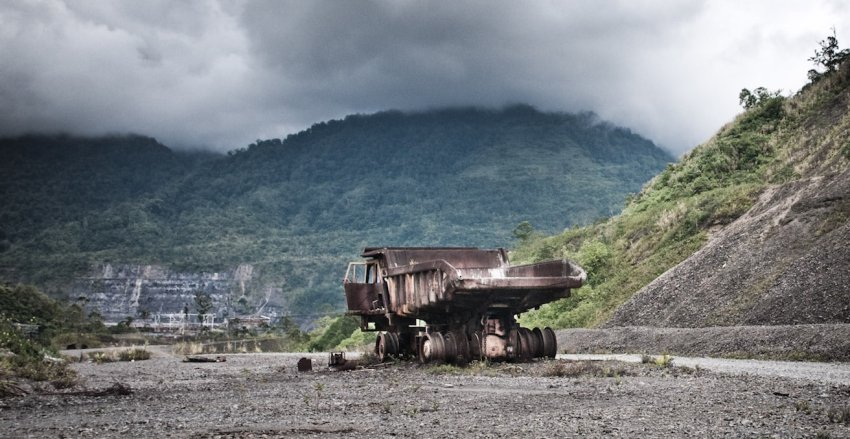
A spokesperson for the Bougainville Hardliners Group has called on the Autonomous Bougainville Government (ABG) to explain why the Australian Federal Police (AFP) were at the controversial Panguna mine site in central Bougainville on June 5.
AFP officers were seen taking GPS readings at the abandoned copper mine site. James Onartoo, a former leader of the Bougainville Revolutionary Army, said the community has a right to know why they were there and what they were doing.
“I think the public is owed an explanation as to what is happening,” said Onartoo. “To the best of my knowledge the AFP were ousted in 2007 on suspicion of spying on the ABG and the people of Bougainville by the former President, late Joseph Kabui.”
He suggested that their presence could be linked to the mine’s controversial reopening.
“Their presence at Panguna, which is the site of so much controversy and disagreements plus issues of sensitive nature stemming from proposed reopening by ABG, raises serious questions considering the fact that, in the past, Australia has always supported military intervention by the Papua New Guinea Defence Force to regain control of the mine.”
Onartoo said if the AFP can raid the ABC, “they are capable of anything”, including gathering intelligence “for the purpose of regaining control of Panguna and restarting the mine with use of force”.
The June 11 ABC Radio Pacific Beat said the AFP confirmed that members from the Papua New Guinea-Australia Policing Partnership did visit the site to “undertake an assessment of capability development for support to the Bougainville Police Service”.
Onartoo said Australia’s interest in the mineral deposits at Panguna has never declined. He has criticised Australia’s advice that the ABG prioritise mining over agriculture, tourism, fishing and other sustainable industries.
Several companies, including of Australian origin, are vying to reopen the Panguna mine, which was shut down in 1990 after a brutal battle against mostly indigenous landholders who received none of the huge profits generated by the mine. More than 20,000 people were killed during the 10 year civil war.
The Bougainville Hardliners Group has been actively resisting attempts by the ABG to weaken the Mining Act to give foreign companies exclusive rights to large-scale mining. It opposes further large-scale mining in the autonomous Papua New Guinea region, saying the focus should be on sustainable alluvial mining.
Bougainville is scheduled to hold its independence referendum in October under the terms of the 2001 peace agreement. The referendum outcome then has to be ratified by the PNG parliament.
The ABG has expressed its desire to reopen the Panguna mine.
Legislation to amend the Mining Act is currently being debated in the PNG parliament. According to landowners, the proposed amendments would effectively remove customary ownership of minerals and remove landowners’ veto rights over mining projects.
Onartoo has said that Bougainville’s 350,000 people do not need large-scale mining, and that the changes being proposed are in breach of sections 23 and 24 of Bougainville’s constitution as well as the Mining Act which provides protection from a repeat of “the ownership of minerals on the island by colonisers”.
A report by Papua New Guinea Mine Watch in January said Australian businessperson Jeffrey McGlinn of Caballus Mining is pushing for the act to be amended. A Radio New Zealand report said McGlinn “wanted to shortcut a number of what it calls complicated requirements in the act to fast track vital infrastructure development in Bougainville and boost employment ahead of the referendum”.
However, other reports suggest that he is more focussed on seizing control of major mineral deposits across Bougainville ahead of the referendum.
The Osikaiyang Landowners group has referred the government’s mining plans to the Papua New Guinea Ombudsman.